Liu Zongyuan celebrates his rustication
He's moving to the country, gonna eat a lot of peaches
Life by the River Liu Zongyuan Dispatched to live among the southern tribes, Released at last from cap and heavy gown, Now gardens occupy my leisured life, Or roaming in the wooded hills around. At dawn, dig dewy weeds; by night I pole And bump my punt on every rock that lies In rivers where I never see a soul, But sing long hymns to crystal southern skies. 柳宗元 溪居 久为簪组累,幸此南夷谪。 闲依农圃邻,偶似山林客。 晓耕翻露草,夜榜响溪石。 来往不逢人,长歌楚天碧。
Liu Zongyuan (773-819) was the king of quiet, meditative beauty. He had been thrown out of the capital, but he didn’t write complaint poetry. Instead, he produced little gems like this.
Quite by coincidence, I am also in Hunan, where Liu was sent, and have also spent the day by a lovely stream. (I’m near Changsha, and Liu was in Yongzhou, 300km away. But for China, that’s close.) I can confirm that it’s gorgeous here, that the gardens are full of fat vegetables and splendid livestock, and that the waterways meander enticingly through verdant hills. Liu was a sensible man to celebrate his political misfortune.
The translation came together unexpectedly well, because the source allowed me to engage in a little cheeky enjambment - letting sentences run over the ends of lines. Chinese poems almost always have a single sentence for each line, and when you copy that across into English, it can sound a bit childish. Often, to stay true to the source poem, I have to end-stop (finish the sentence/phrase at the end of the every line), but just sometimes a more fluid form emerges, and I think it suits the effortless gorgeousness of source.



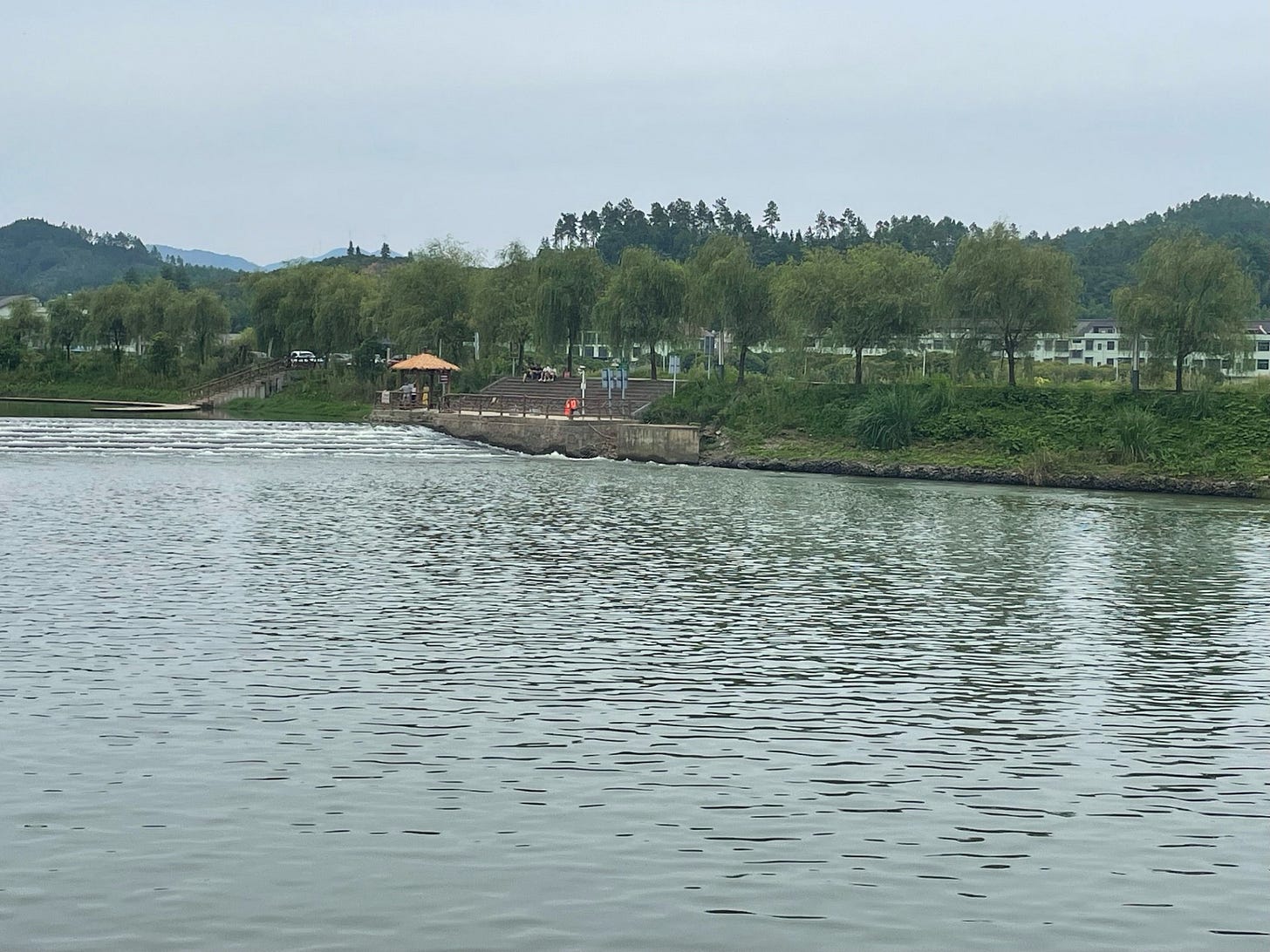
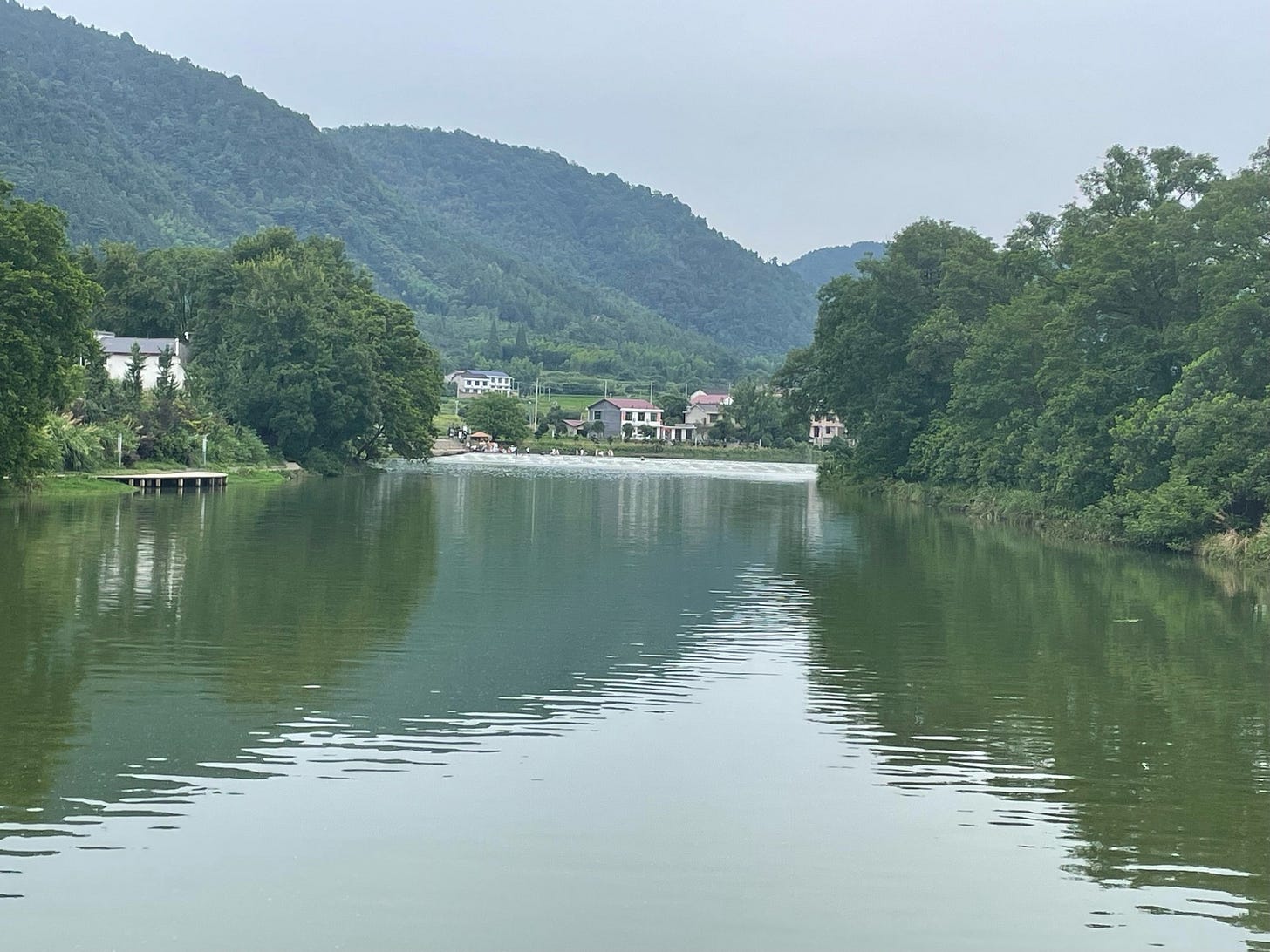
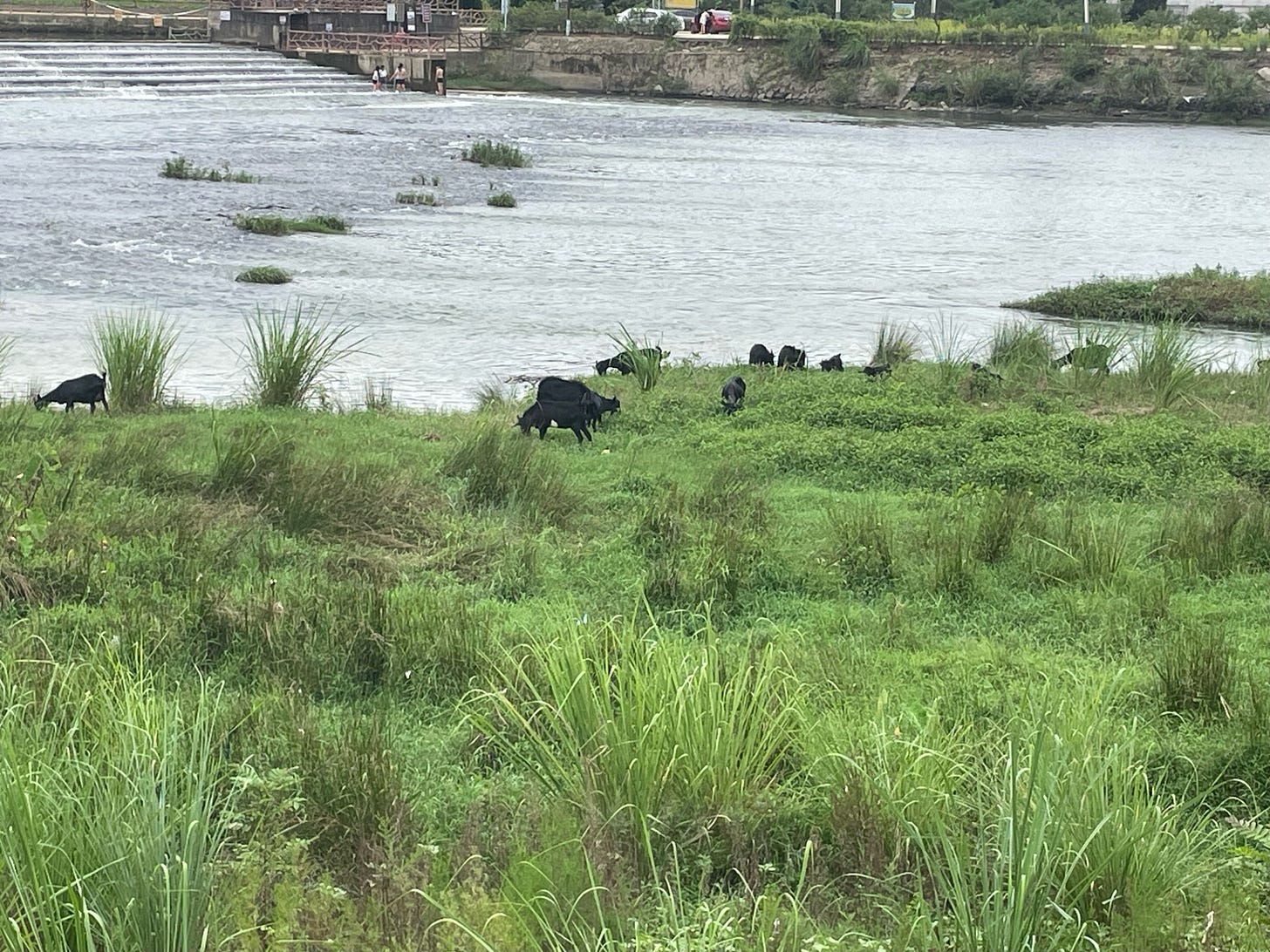
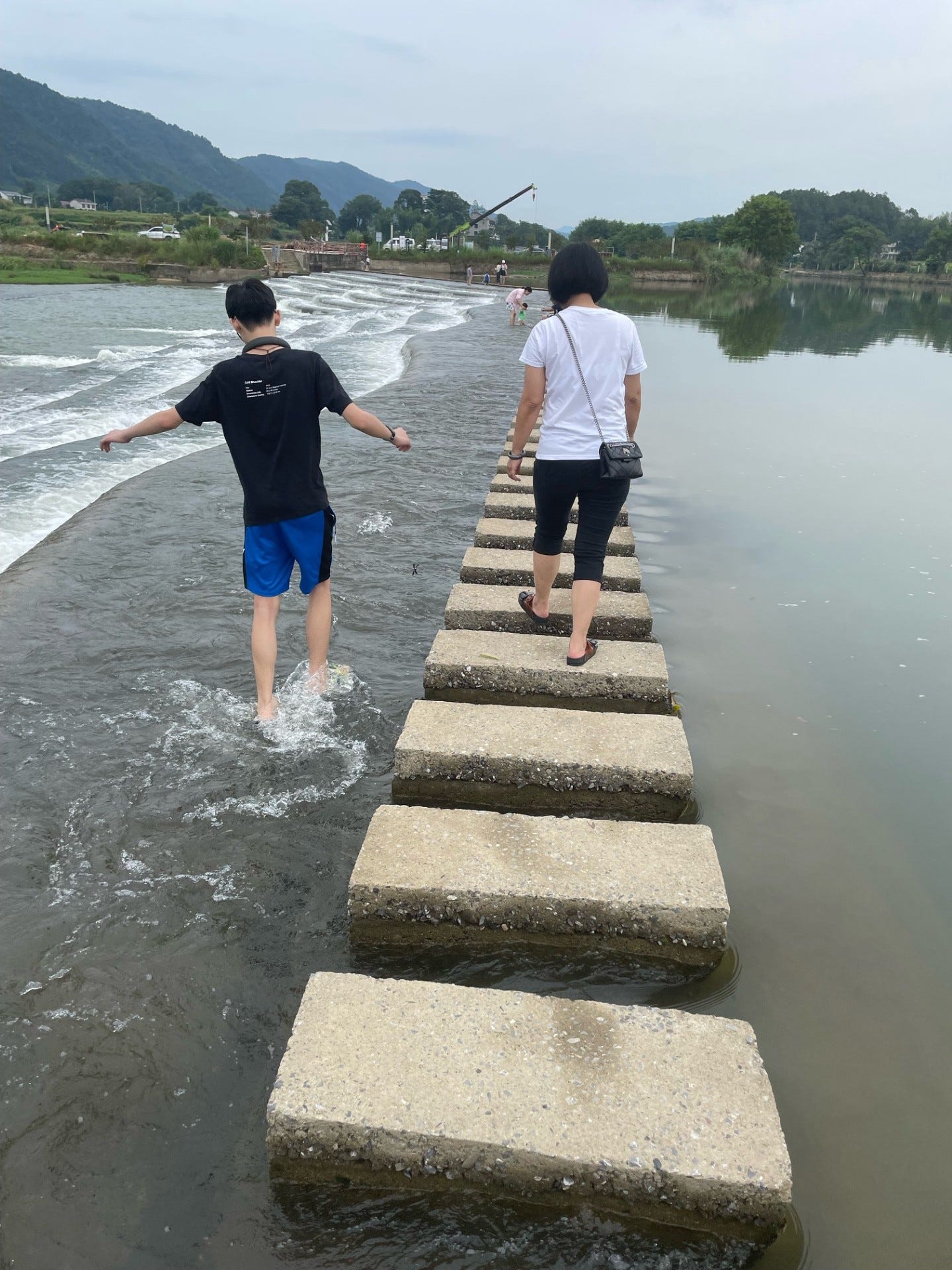
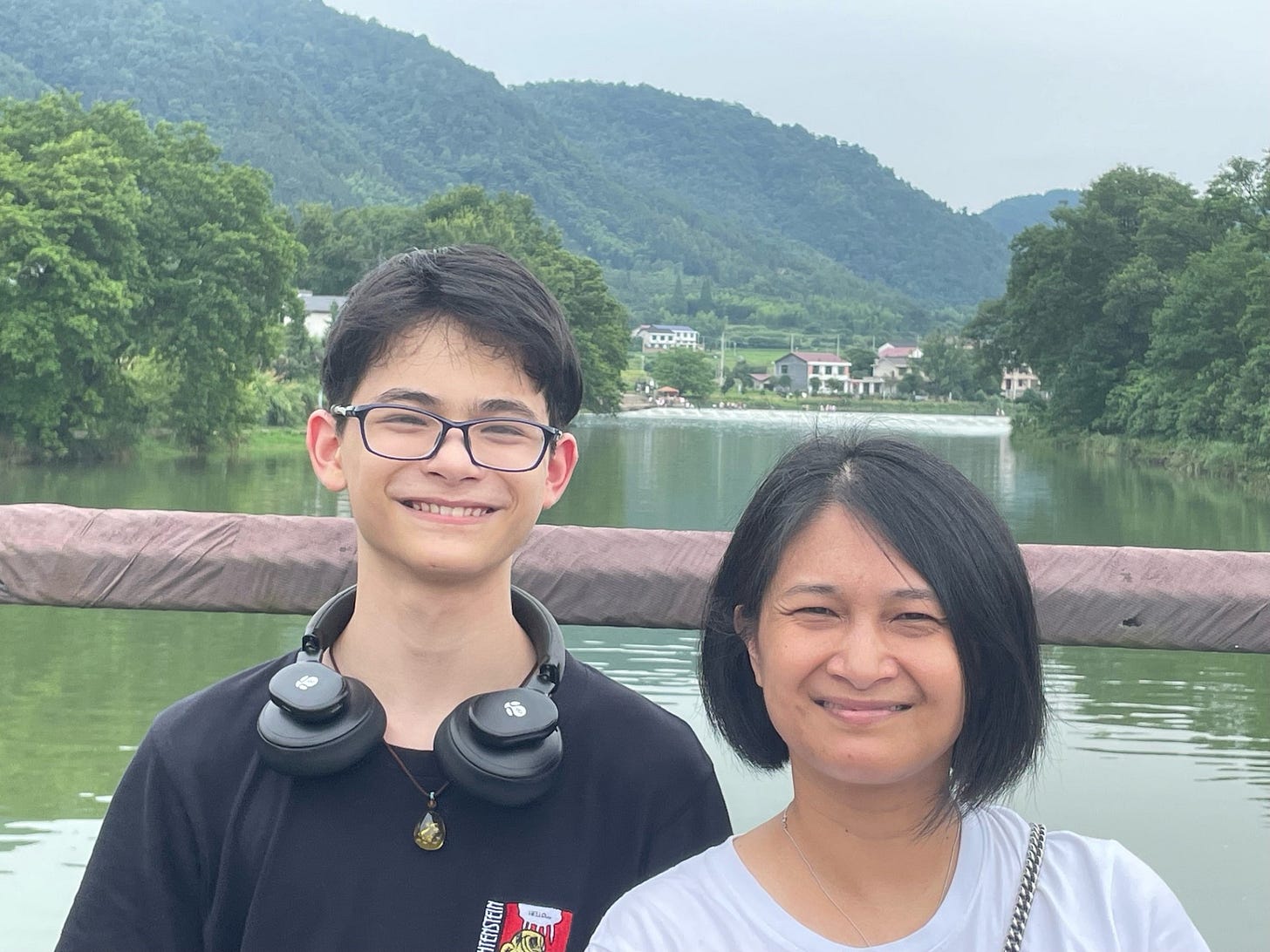
How fun to see your life interact with the poetry! Thank you so much for sharing your trip. Looks beautiful!
I didn't know the word enjambment, but David Hinton's translations are full of it.